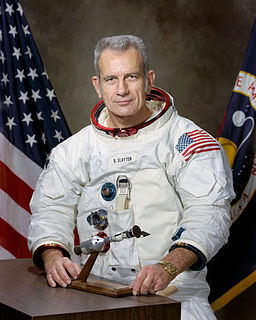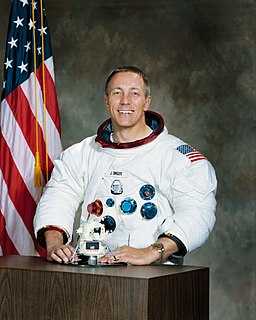A Quote by Liu Cixin
I'm absolutely positive about human survival. We will continue to develop our civilisation and expand not just on Earth, but also across the solar system, the galaxy, even the entire universe.
Related Quotes
While the Copernican principle comes with no guarantees that it will forever guide us to cosmic truths, it's worked quite well so far: not only is Earth not in the center of the solar system, but the solar system is not in the center of the Milky Way galaxy, the Milky Way galaxy is not in the center of the universe, and it may come to pass that our universe is just one of many that comprise a multiverse. And in case you're one of those people who thinks that the edge may be a special place, we are not at the edge of anything either.
Today the human race is a single twig on the tree of life, a single species on a single planet. Our condition can thus only be described as extremely fragile, endangered by forces of nature currently beyond our control, our own mistakes, and other branches of the wildly blossoming tree itself. Looked at this way, we can then pose the question of the future of humanity on Earth, in the solar system, and in the galaxy from the standpoint of both evolutionary biology and human nature. The conclusion is straightforward: Our choice is to grow, branch, spread and develop, or stagnate and die.
I feel that I'm in on the ground floor of something that human beings will be concentrating on for the next 1,000 years-if we don't destroy ourselves in the meantime. It's possible that 50 years from now we're going to end up out of this solar system, batting around the universe, at least within our galaxy, investigating other stars and other systems.
But, as Douglas E Harding has pointed out, we tend to think of this planet as a life-infested rock, which is as absurd as thinking of the human body as a cell infested skeleton. Surely all forms of life, including man, must be understood as "symptoms" of the earth, the solar system, and the galaxy in which case we cannot escape the conclusion that the galaxy is intelligent.
If our solar system is not unusual, then there are so many planets in the universe that, for example, they outnumber the sum of all sounds and words ever uttered by every human who has ever lived. To declare that Earth must be the only planet with life in the universe would be inexcusably bigheaded of us.
Men are weak now, and yet they transform the Earth's surface. In millions of years their might will increase to the extent that they will change the surface of the Earth, its oceans, the atmosphere, and themselves. They will control the climate and the Solar System just as they control the Earth. They will travel beyond the limits of our planetary system; they will reach other Suns, and use their fresh energy instead of the energy of their dying luminary.
Discovering that our solar system has many more planets than we ever expected, and that most of them are ice dwarfs rather than like Earth and the other rocky terrestrials, is just another step in the revolution in viewpoint that removed the Earth from the center of the physical universe and makes Earth all the more special.
































